From child education all the way to university level, the curriculum in Iraqi Kurdistan is outdated.
A modern education system facilitates development, prosperity and peace. A good education raises awareness, increases tolerance and helps to create broadminded, creative and productive individuals. However, when looking at the Middle East and Iraq in particular, the blatant neglect of education is an observable and sad truth. The media is partly to blame. Political debate and security dynamics feature more prominently in the media, leaving little room, if any, for raising awareness and highlighting the importance of education and its current flaws.
A good education has the potential not only to rescue the people from economic deprivation, but also to build a stable and peaceful society where support for violence and ignorant practices is rejected, the fight for equality is relentless and where injustice, discrimination and oppression are unacceptable. From child education all the way to university level, the curriculum in the Kurdistan region, as well as the rest of Iraq, is outdated. University graduates lack sufficient skills and competence needed to create a modern and progressive society. Despite the modern advances in education methods, teaching in Kurdistan, Iraq and the Middle East is generally still designed in such a way that memorizing facts wrongly replaces training and practical knowledge. Likewise, listening and writing often replaces discussion and debate.
To learn more about education in Iraq and the Kurdistan region, Aras Ahmed Mhamad speaks to Dr. Mohammed Shareef, a fellow of the Royal Asiatic Society (London). Shareef has worked for the United Nations and is a lecturer in International Relations at the University of Sulaimaniya in the Kurdistan region of Iraq. He is the author of The United States, Iraq and the Kurds: Shock, Awe and Aftermath.
Mhamad and Shareef talk about effective teaching methods, the importance of debate and the impact of Kurdish culture on education.
Aras Ahmed Mhamad: Student, teacher, and curriculum: How do you look at this triangle? Which one is more central to education?
Mohammed Shareef: All three go hand in hand and are central to any quality education. However, I would place greater importance on the academic standards subscribed to by the academic institution itself more than anything else. The criteria adopted by any academic institution define its prestige, input and productivity. So many excellent students and academics are the victims of the poor public academic institutions in Kurdistan.
Mhamad: What are the most important things you first teach your students?
Shareef: Self-dependency, independence and self-discipline are aspects of education I hold in great esteem. However, these are all very difficult to convey and implement at the academic institutions in Kurdistan, which are fervently committed and passionately devoted to upholding the outdated spoon-feeding culture.
Mhamad: How do you psychologically prepare them for the year?
Shareef: I try to convince them that I am on their side and not against them. I always tell students in my very first class, at the beginning of every year, that I am more committed to their success and them passing their exams than they are themselves.
I felt the female student population had been excluded, as if politics and law — my area of undergraduate teaching — were professions exclusive to male members of society.
Mhamad: Weak students usually feel unappreciated and become stressed. How do you engage them and let them gain confidence?
Shareef: The current dysfunctional education system in Kurdistan totally discourages students with lower intellectual ability. This is an unmistakable reflection of the poor and outdated standards implemented in assessing students for university admission. Many students in Kurdistan are not university-level students at all. However, due to cultural pressure and the wrong parameters implemented, they end up at university.
This phenomenon creates a negative impact on the state of education, disallowing the more capable students a decent and effective education, with the less capable ones simultaneously left feeling disenchanted and disillusioned. The best way is to create various academic institutions catering to different degrees of intellectual ability. Moreover, not all pupils should be required to enroll at university. The culture must change, to this end, and vocational colleges and service sector training should be introduced and increased.
Mhamad: Education is every citizen’s essential right, regardless of religious beliefs, political affiliations, gender, skin color and ability. What is your view on that?
Shareef: This is undoubtedly true. But I would most certainly introduce various rigorous and effective filters to separate, distinguish and categorize these students into different groups based on intellectual ability, skills and talent — to essentially “separate the wheat from the chaff,” as the English say.
Risking being politically incorrect, I have noticed that many decent and well-behaved students have suffered greatly in Kurdistan, substantially impacting their academic performance at school or university, because they have been mixed compulsorily with less-motivated students of a different social class (i.e. culture).
Mhamad: What are the key strategies for increasing student involvement, motivation and understanding? What do you think is the most suitable pedagogical way of teaching?
Shareef: I was one of the very first academics at Sulaimani University to encourage academic debate and discussion inside the classroom, and was the first academic to insist on weekly seminars, presentation hand-outs and PowerPoint presentations. I tried to convey Western pedagogy to Kurdistan and persevered, despite the enormous challenges in front of me. I also requested that every presentation be given by two students — one male and the other female — to allow and encourage female participation.
I felt the female student population had been excluded, as if politics and law — my area of undergraduate teaching — were professions exclusive to male members of society. All these steps were quite significant and often difficult to persuade and implement in the Kurdistan region, where a spoon-feeding teaching culture was the norm and very dated academic material was being used. I attempted to change the old-school teaching tradition, from memorizing material to comprehension, analysis, critique and creative thinking.
Mhamad: Which one is preferable and more productive: student-focused approach or a teacher-centered one?
Shareef: A student-focused approach is much more effective, as students learn to rely on themselves and evolve with supervision and guidance from academics. The current academic culture in Kurdistan’s universities has created an absolutely ineffective, totally uncreative, unimaginative, uninspired, lazy, unreliable and unproductive workforce.
Mhamad: What are the hurdles a teacher faces in communicating with their students effectively?
Shareef: On the one hand, Kurdish culture has clearly set certain boundaries of authority and respect between a teacher/lecturer and the pupil/student, so essentially it is very difficult to change the current situation without changing the culture. On the other hand, a Kurdish student would totally misinterpret and misunderstand any flexibility from the lecturer, and any breaking down of such barriers and would most probably be exploited by students, leading the teacher/lecturer to return to the old and usually strict, less communicative and authoritative posture.
Students in Kurdistan are victims of a dysfunctional educational system that has impacted them negatively since the age of six. Frankly speaking, they are now beyond repair.
Mhamad: How can teachers initiate and foster classroom interactions, develop a student’s self-confidence and improve outcomes?
Shareef: By encouraging debate and free speech inside the classroom, and most definitely by not embarrassing the student, a teacher can get a healthy exchange and increase student confidence.
Mhamad: From your experience, can examinations determine the true value of a student?
Shareef: The student evaluation system in Kurdistan fails four major tests: First, comprehension; second, analysis; third, creative thinking; and finally, critique. So, it hardly allows a fair and genuine assessment of the student. It is more of a memory competition rather than an evaluation of academic ability. It pursues the old-school teaching tradition of memorizing very dated academic material — a method long overdue.
Mhamad: Fear of making mistakes, an inability to take responsibility, unwillingness to read and lack of confidence — these are the most observable traits of some Kurdish students. What is your opinion on this and what are some characteristics of a good teacher?
Shareef: I totally agree! Students in Kurdistan are victims of a dysfunctional educational system that has impacted them negatively since the age of six. Frankly speaking, they are now beyond repair. It is far too late to initiate change in the current generation of university students. The only source of hope is to nurture a new generation of pupils/students from a very young age — preferably from nursery.
As for teachers, today’s educators in Kurdistan are themselves a reflection of the poor education system. A new generation of teachers has to be recruited in the future who are professional, well-trained, well-informed, assertive and have excellent communication skills — traits that are currently lacking.
Mhamad: What are the seeds of learning? Is it the arranged curriculum?
Shareef: Excellent education manifests itself through a host of components and requirements: quality education (enrolling at an academic institution that subscribes to high standards); wealth (adequate family funding helps tremendously in giving the student stability to learn); environment of upbringing; social network (interaction with successful individuals encourages ambition and hard work); values (the values placed by one’s family on education); place of education (the seriousness and prestige of the academic institution); and manners.
Mhamad: What are the most obvious characteristics of a successful student?
Shareef: A successful student works hard and is usually articulate, confident, well-behaved, self-disciplined, independent and devotes time to reading extra-curricular material relevant to his or her area of academic study, in addition to other literature.
The views expressed in this article are the author’s own and do not necessarily reflect Fair Observer’s editorial policy.
Support Fair Observer
We rely on your support for our independence, diversity and quality.
For more than 10 years, Fair Observer has been free, fair and independent. No billionaire owns us, no advertisers control us. We are a reader-supported nonprofit. Unlike many other publications, we keep our content free for readers regardless of where they live or whether they can afford to pay. We have no paywalls and no ads.
In the post-truth era of fake news, echo chambers and filter bubbles, we publish a plurality of perspectives from around the world. Anyone can publish with us, but everyone goes through a rigorous editorial process. So, you get fact-checked, well-reasoned content instead of noise.
We publish 2,500+ voices from 90+ countries. We also conduct education and training programs
on subjects ranging from digital media and journalism to writing and critical thinking. This
doesn’t come cheap. Servers, editors, trainers and web developers cost
money.
Please consider supporting us on a regular basis as a recurring donor or a
sustaining member.
Will you support FO’s journalism?
We rely on your support for our independence, diversity and quality.


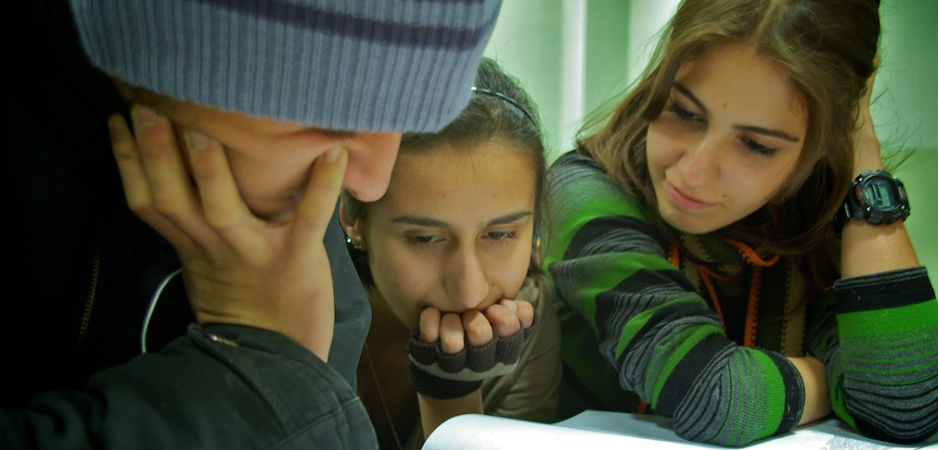
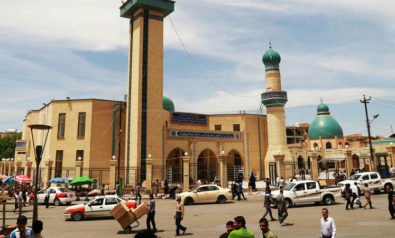
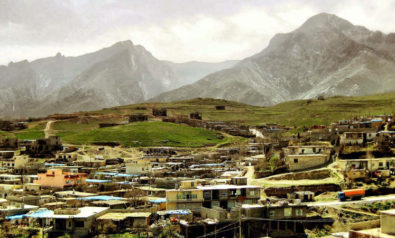

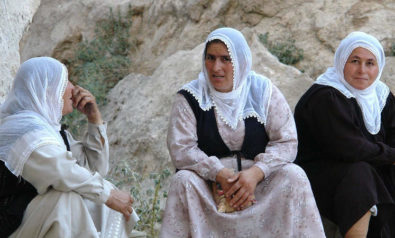

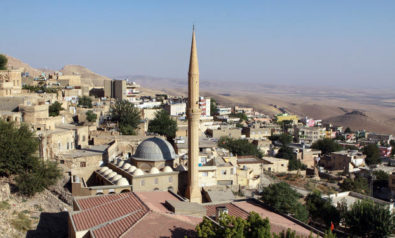
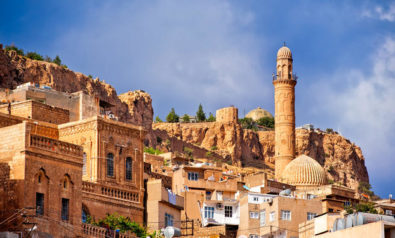
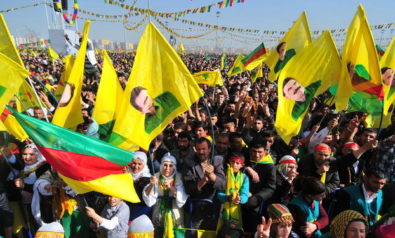
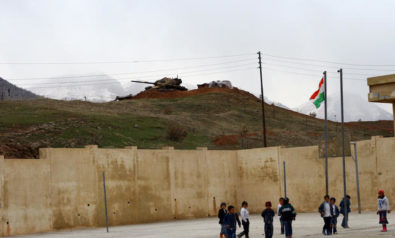

Comment
Dear Authors,
Thank you for your attempt to tackle an important sector such as Education. I would, however, disagree with some points both in the content as well as the way of their presentation in your article. I am not in a position to refute your claims, but I would say that you should have been more careful! Making sweeping statements as to say that ‘From child education all the way to university level, the curriculum in the Kurdistan region, as well as the rest of Iraq, is outdated’ is neither accurate not true! I personally am using books that are very modern in both date and the content!
Another thing is that the same students that have been taught here in Kurdistan obtain top ranks when they study their Masters and PhDs abroad! There are many more things to say, but I just wanted to give a reminder for your future writings.